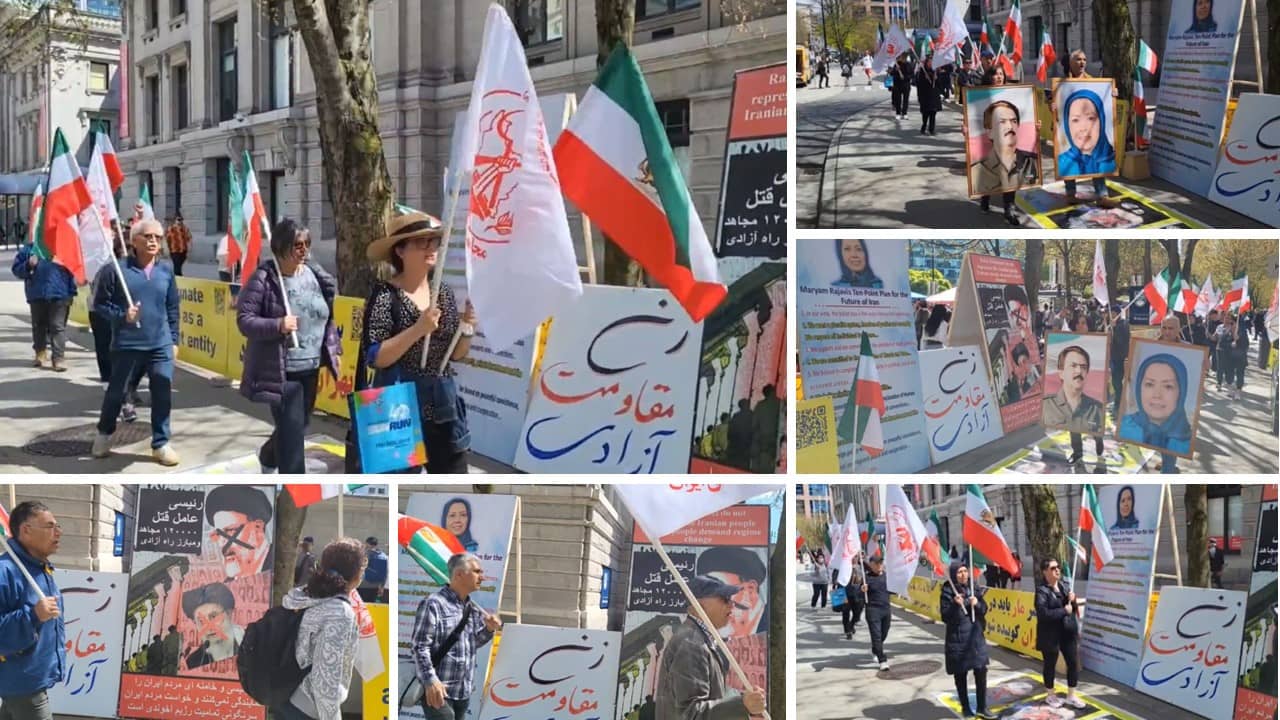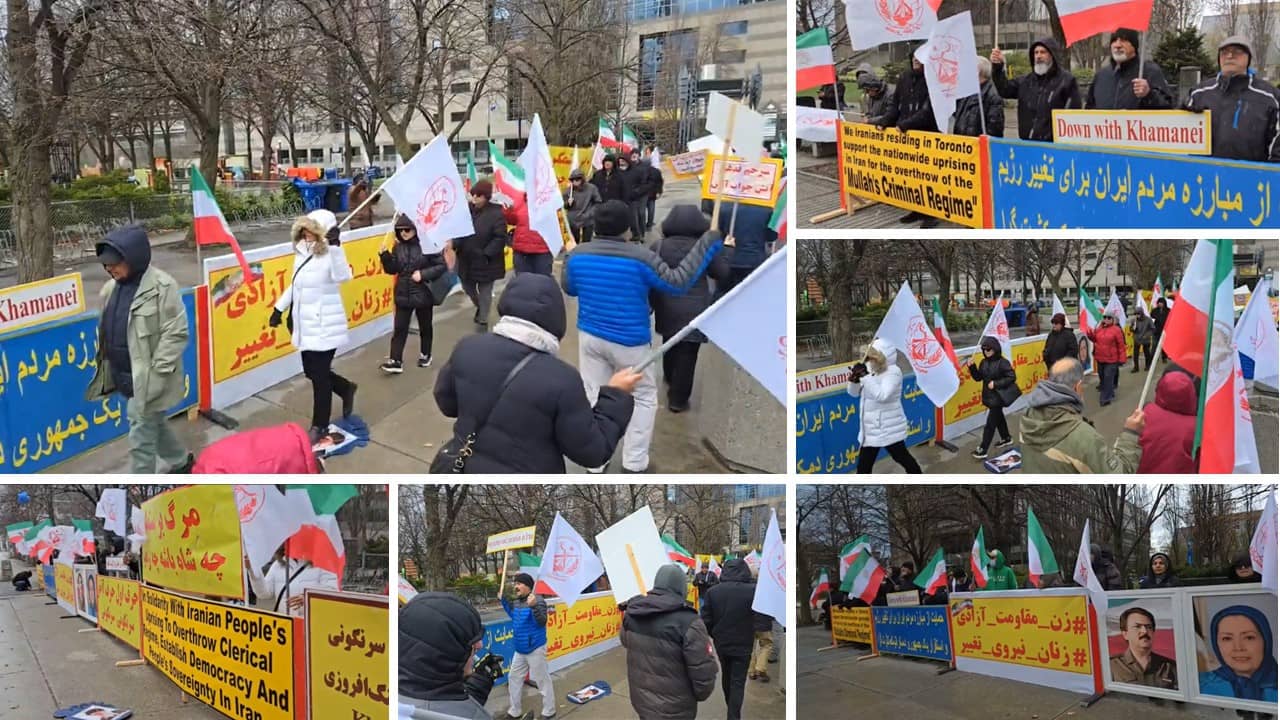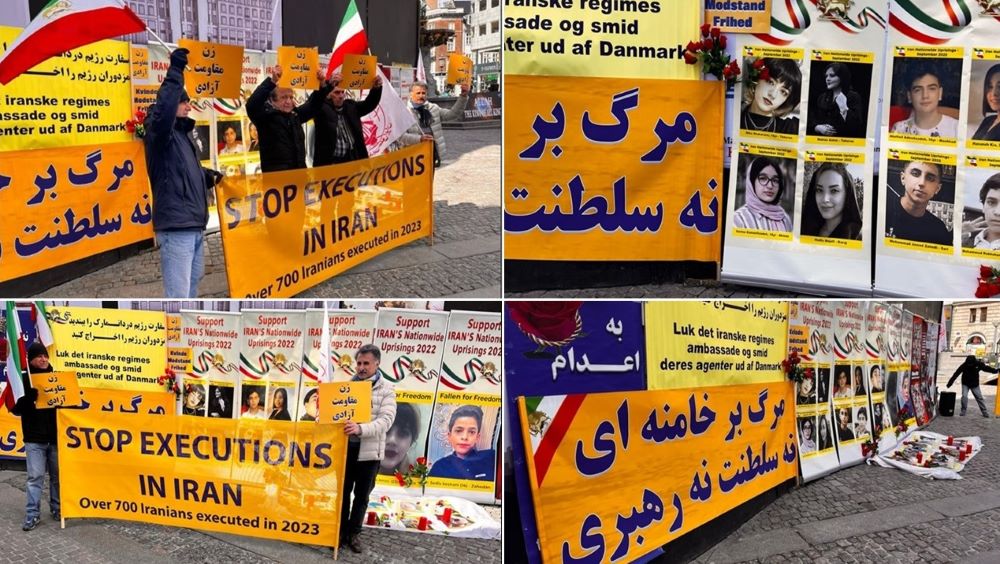Iran’s 1988 Massacre: Testimony by MEK witness Hengameh Haji Hassan, Ashraf 3, Albania, 15 July 2019
Hello, dear audience and my dear sister Maryam
My name is Hengameh Haj Hassan. I was a nurse working at the Sina Hospital in Tehran
I was arrested in 1982 for allegedly supporting the MEK
Many of my colleagues were arrested and many executed before me.
One of them, Ms. Fahimeh Mir Ahmadi, was an intern in the Sina Hospital, she was pregnant when she was executed
Our crime was curing patients who were injured by the IRGC guards and were brought to the hospital during demonstrations or on the streets.
I was in Evin prison for a year and then transferred to Ghezel Hesar prison.
the torture continued harshly, different kinds of tortures, from ordinary torture to enforced insomnia, coldness, no bathing, and having 30 people in a cell designed for 4 people, and a torture called the coffin, residential units and cages. I was in the cage for 7 months.
The cages were built with 2 boards in the dimension of 60x160x70cm.
They had built these cages in a lot of rooms in Ghezel Hesar units and we weren’t aware of them.
They attacked our ward one day, and many of us were beaten and whipped and forced us to these cages.
They kept the prisoner in a cage, always blindfolded and seated. You had no right to make noises or to speak. Even sneezing and coughing was prohibited. The room was so tight that when we moved we hit the boards, and the boards fell on the other person beside, and right after it there was lashing and torture.
I was a few feet taller than others, so when sitting my head showed. They hit my head and told me to lower my head so I had to bend more. This has caused me such back problems that after five surgeries, I still have problems. Also, my left eyesight has become deviated.
For a long time, after seven months, when we would see each other, we couldn’t recognize one another, others too.
They would torture us for any reason in the “cage,” although we had done nothing. For example, if the spoon hit our
plate, they started torturing us under the pretext of attempting to make connections with other prisoners.
We were blindfolded so we couldn’t realize when they would attack us, and suddenly, when they hit us, we would hit
the wall. Some even went unconscious when their heads would hit the wall and we didn’t hear any voice. We could
realize that they were unconscious.
Davood Rahmani, the brutal chief warden of Ghezelhesar, told us, “Here is the final destination. We will kill you all and
your voices will reach no place.” They had already stopped our visits for months.
Our parents were looking for us for months in different prisons. They even went to other provinces but couldn’t find
our traces.
In the “cage,” we were only given three minutes per day to go to the bathroom. We couldn’t even brush our teeth.
We didn’t have such a chance. We couldn’t bath for months. They wouldn’t give us food, and if they did, the food was
scarce and very dirty, such as a watery soup with bread or dirty rice filled with sand.
We didn’t have a watch but we were allowed to go to sleep by midnight.
After a long day of sitting, when we wanted to sleep, they would turn on loudspeakers and play the regime’s mourning songs.
That would deprive us of sleep.
Although we were exhausted, after two or three hours they would wake us up and force us to squat. Being blind-folded,
absolute constant silence and severe physical tortures really unbalanced us.
One would think they are stuck in a long dark tunnel without any end, and it seemed very difficult.
The torturers sought to break our will and force us to surrender and betraying our cause.
Then I thought to myself that once again, like my friends, I should remember the MEK cause and values.
I thought of Tahmineh Rastegar Moghadam, a nurse who was arrested with me, and she accepted my accusation of
having a MEK statement. She was executed to prevent my execution.
Or my beloved friend, Shekar Mohammadzadeh, who was arrested in the surgery room while operating a patient and
taken directly to the torture chamber. She was sentenced to 15 years behind bars. However, after seven years and
going through various tortures in the “Residential Units,” the “Cage” and the “Coffin,” she was finally executed in 1988
along with my other colleague Akram Bahador and thousands of other prisoners.
It was then that I decided to prepare myself for longer days in the future.
I knew this would not last long so I planned every second and every day. I started recalling those things I had learned in
the MEK. Such as poetry, hymns, martyrs’ biographies and political subjects. I remembered them all and repeated them
to myself.
I remembered my lessons in school and conferenced them for myself.
I tried to remember every song that I knew from my childhood and memorized them again.
I had a workout plan twice a day, I couldn’t move but I did all the workouts in my head.
I missed my patients. Every day I went to the hospital in my mind and nursed them. To resist those loud mourning
sounds that prevented us from sleeping, I decided to focus much so I couldn’t hear them and I succeeded.
Instead of hearing those sounds, I tried to remember those places that I had visited with my friends. I imagined myself
being there and that’s how I could conquer those voices and go to sleep.
But the hardest time was when I was overwhelmed with loneliness. It was very difficult for me, but I thought of God, of
how close he is, and he would help me. I remembered Massoud Rajavi, to whom I promised that I would stand to the
end and fight. This gave me strength. I talked to him and I didn’t feel lonely.
The torturers thought they could break our will through torture
They didn’t know that this works oppositely in the case of MEK supporters. As much as we endured torture, we
believed more in the righteousness of our cause and that we have to continue, because this is the right thing to do.
And I realized that others in the “Cage” had reached the same conclusion.
Although I was severely tortured and I still suffer from it, all of my friends who were inside the “cage” were executed,
with the exception of a small number. However, we always considered ourselves as representatives of the MEK and
were committed to support our cause and leader, because we owed it to him. He led us to the most glorious and noble
path while never asking for anything for himself. He only thought about the freedom for his people.
For this reason, when we were released from prison, we rejoined the MEK and have continued our struggle to this day.
Now, there are 800 former political prisoners in Ashraf 3 and this cause will live on.





